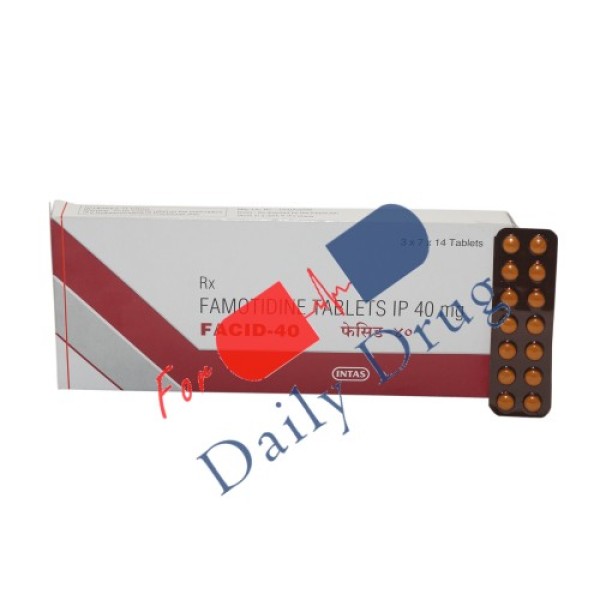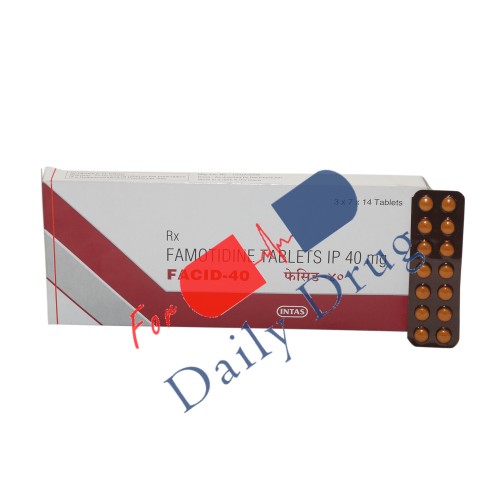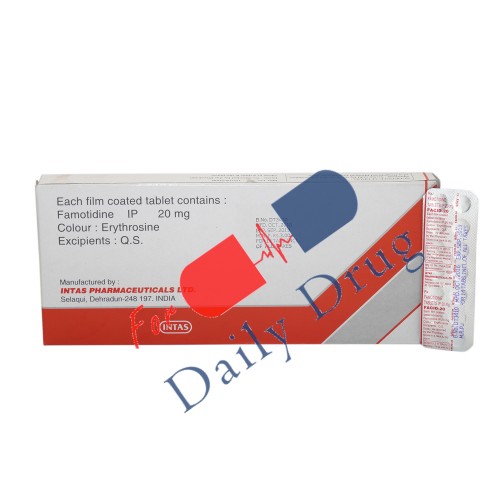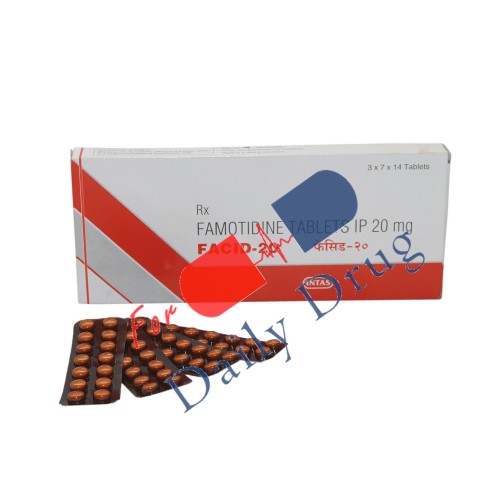Use of Famotidine,
The Salt Present In Facid 20
Famotidine, The Salt
Present In Facid 20 is used in the treatment of:
·
Duodenal Ulcers
·
Peptic Ulcers
·
Hypersecretory Condition
·
GERD (Gastroesophageal Reflux Disease)
·
Gastric Ulcers
Duodenal Ulcers: They are a type of
peptic ulcers mainly affecting the upper part of the small intestine. They are
mainly caused by an infection of bacteria called Helicobacter Pylori.
Peptic Ulcers: It is medical
condition in which ulceration occurs in the stomach lining or in the upper part
of the small intestine. The common causes of this disease are bacterial
infections by Helicobacter Pylori, chronic use of NSAIDs and tobacco abuse. The
common symptoms of this disease include vomiting blood, stomach pain, loss of
appetite and abdominal fullness.
GERD (Gastroesophageal Reflux Condition): It is a digestive disorder which mainly affects the
muscles of the esophagus and the stomach. It is a long term condition where the
stomach contents come back up into the esophagus. The main symptom of this
condition is heartburn.
Gastric Ulcers: They are a type of
peptic ulcers mainly affecting the stomach. They are mainly caused by infection
of a bacteria called Helicobacter Pylori and due to chronic use of NSAIDs.
How Facid 20 works
The drug acts by
competitive inhibition of histamine H2 receptors of the gastric parietal cells.
Gastric parietal cells are located in gastric glands which are responsible for
HCl secretion. By inhibition of this cells the drug reduces the amount of HCl
secreted to stomach.
How to take Facid 20?
Facid 20, that contains the salt Famotidine, can be taken with
or without food. If you are using this drug once daily it is better to take it
at night. If you are using this drug for self-treatment or for treatment of heartburn then take the 15-60
minutes before food with a glass full of water.
Dosage
Famotidine, the active
salt present in Facid 20 is to be taken usually in dosage which ranges from
10mg to 40 mg and is available at every leading online pharmacy, drugstore and
medical supply store. A more specific dose can be directed by your physician.
How long should I Continue Taking Facid 20
It is always advisable to
consult your physician before you start/stop taking the drug. Avoid taking such
decisions on your own and do not self-medicate.
Missed Dose
A missed dose should be
taken as soon as you remember it. However, if it is almost time for the next
dose, skip the missed dose and go back to your regular schedule. Do not
take multiple doses at the same time
Drugs That Interact With Famotidine, The Salt Present In Facid 20
The following drugs are
known to interact with Famotidine, The Salt Present In Facid 20:
·
Cefpodoxime
·
Cefuroxime
·
Dasatinib
·
Erlotinib
·
Gefitinib
·
Mesalazine
·
Ketoconazole
·
Itraconazole
·
Risedronate
Tell Your Physician
·
If you have a renal impairment.
·
If you have stomach cancer.
·
If you have a history of long QT syndrome.
·
If you have any breathing problems.
·
Inform your doctor of all the medicines you are taking.
When Not To Take Facid 20
Do not take Facid 20 if
you have allergic reactions to the salt or any of the excipients present in the
formulation.
Side Effects Of Facid 20
·
Allergic reactions like rashes, hives, itching, tightness
of chest etc.
·
Diarrhoea
·
Vomiting
·
Nausea
·
Headache
·
Feeling Lightheaded
·
Constipation
Overdose Of Famotidine, The Salt Present In Facid 20
Possible effects of an
overdose may vary from person to person. Seek medical care as early as possible
in case overdose of Facid 20 is suspected.
General Information and Precautions
Tell your doctor
·
If you have an allergy to Famotidine or any of the
excipients present in the formulation.
·
If you are allergic to any any drugs, food items or
substances.
·
If you have any intolerable side effects.
·
Before you start taking any new drug.
·
Do not drink alcohol while using this drug because it can
increase the damage to stomach.







